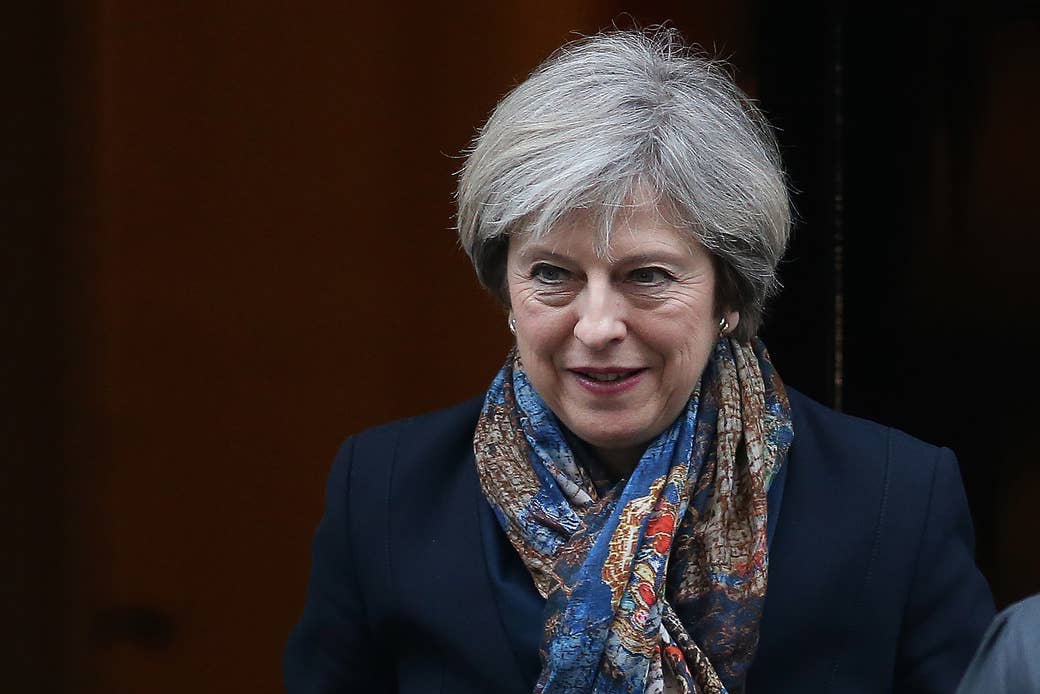
Theresa May's plan for Brexit could leave the UK exposed to a network of secret international courts able to rule in corporations' favour over the NHS, food standards, environmental rules and more, leading trade experts have told BuzzFeed News.
In a detailed speech in January, May set out a plan for Brexit which would see the UK becoming a pioneer of free trade, signing deals with countries across the world, and leaving the jurisdiction of the EU's highest court, the Court of Justice (ECJ). May and her ministers have said they want to sign deals quickly to show the UK can be a "great, global trading nation" after Brexit.
But trade experts have warned that signing such deals without the EU judicial system will almost inevitably mean signing up to systems known as "ISDS" (Investor State Dispute Settlement) – secretive, binding arbitration systems that can force countries to overturn their laws when it hurts corporate interests. These formed the core of international opposition to trade deals such as TTIP (between the EU and US) and CETA (between the EU and Canada).
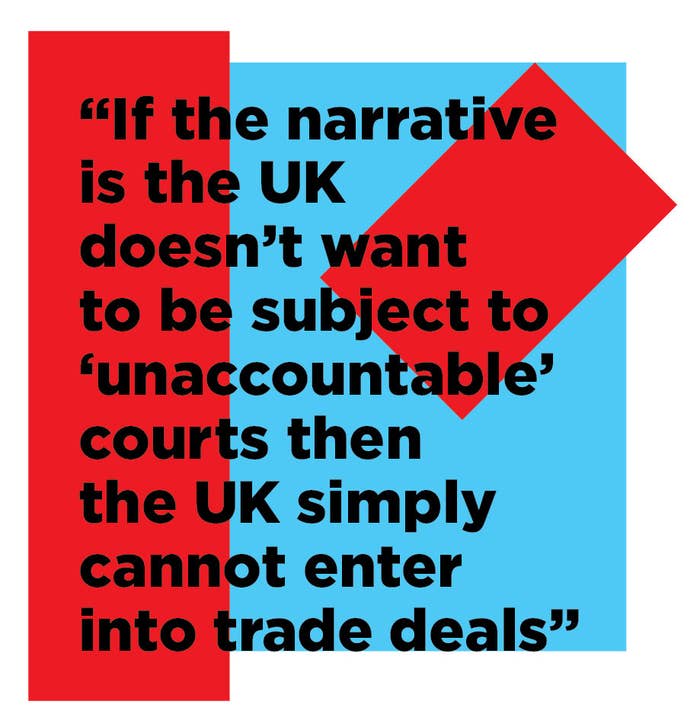
Last year a major BuzzFeed News investigation showed how secretive ISDS arbitration panels had overturned prosecutions of corporate executives and reversed environmental laws, and also shed light on the secretive operations of the systems, which generally don't rely on fixed panels of full-time judges, instead using lawyers as arbitrators – some of whom have previously acted for the companies concerned.
In the UK, opponents to deals including ISDS – primarily anti-TTIP or -CETA activists – have warned that such trade deals could see corporations challenging the NHS as unfair competition to private health providers, or challenging UK animal welfare and food safety rules, including those banning GM foods and chlorine-washing of chicken.
Moreover, the experts warn that because of the UK's lack of negotiating expertise and its desire to sign deals quickly, May will probably have to accept deals as they are if she is to avoid years or decades of wrangling, potentially leaving the UK open to imports below current welfare standards.
"If the narrative is the UK doesn’t want to be subject to 'unaccountable' courts then the UK simply cannot enter into trade deals," Professor Geert van Calster, head of law at the University of Leuven, told BuzzFeed News.
"The very nature of trade deals explains why it’ll be by no means easy, straightforward, and quick to agree a trade deal. The only quick way to a US–UK agreement would be to take TTIP and sign it.
"Now whether that would be possible for the UK I very much doubt. If the UK were worried about the impact of TTIP on the NHS, agriculture, and public health then why would they not be now?"
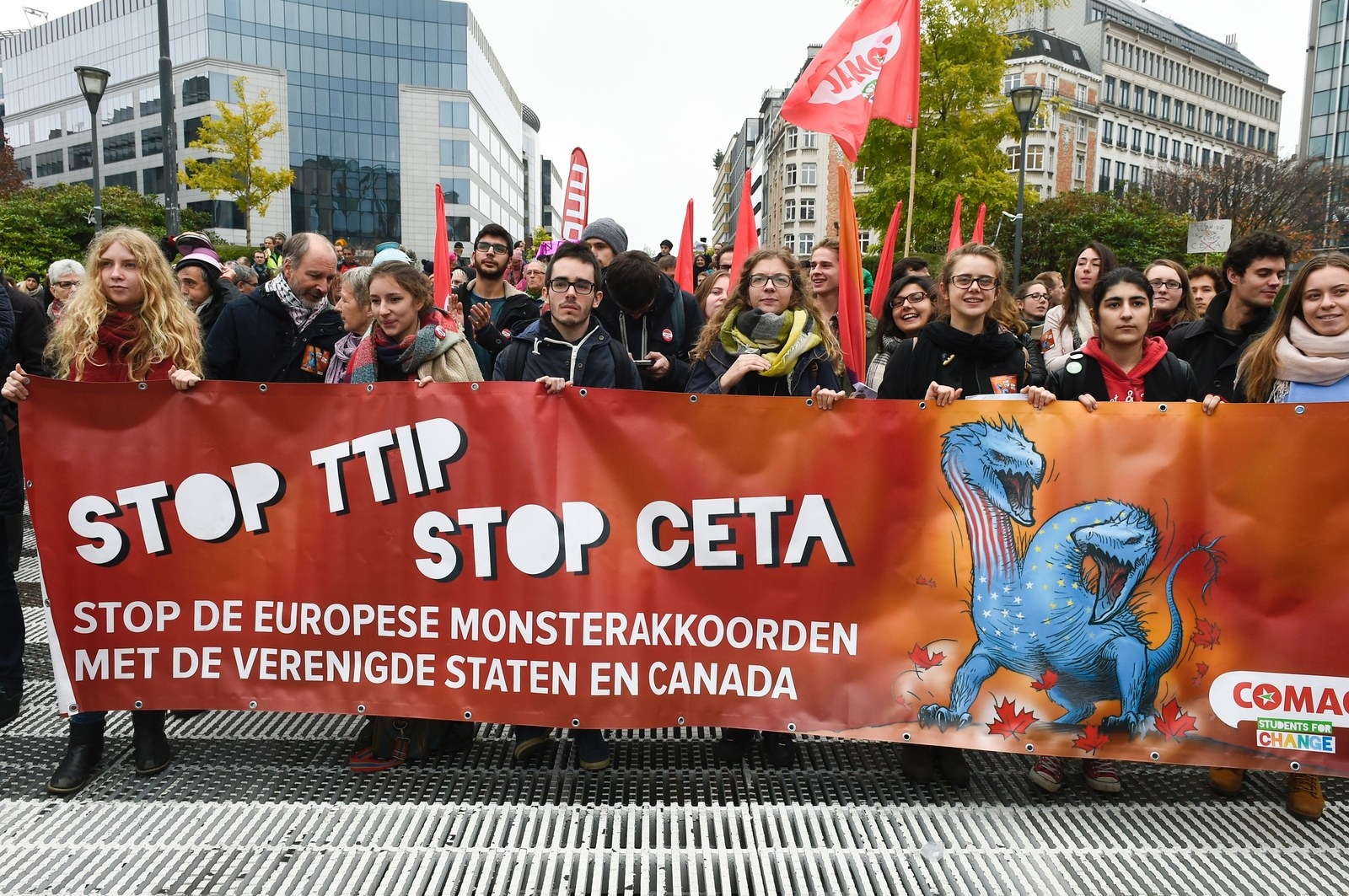
Van Calster explained that modern trade deals for countries such as the UK are not mainly about agreeing tariffs – the amount of tax paid on different imported goods – but instead are generally about agreeing issues like standards, regulations, and other details.
This can include issues such as which agricultural practices are acceptable for food sold in both countries, meaning that a deal with the US could open up the UK market to practices currently banned for UK farmers, such as chlorine-washing chicken.
"These [ISDS courts] are absolutely not more accountable than the ECJ," said van Calster.
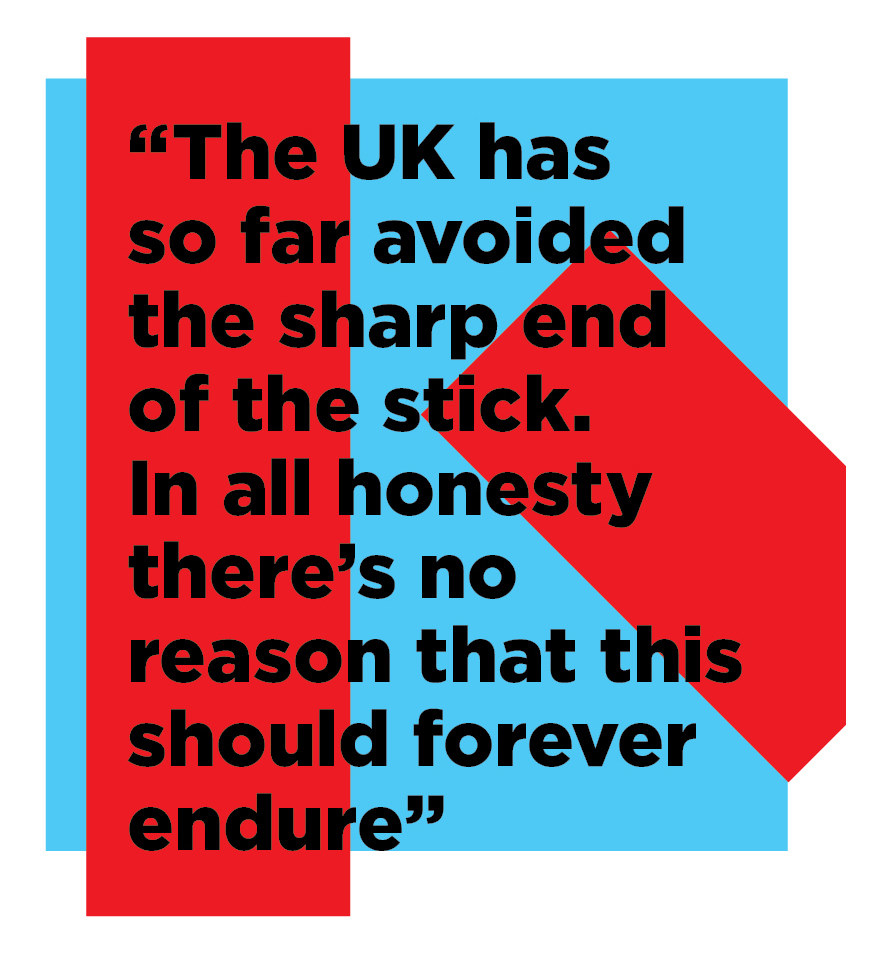
"I can’t imagine a deal without some form of dispute settlement – a large chunk of the UK’s GDP is services, for which tariffs are almost irrelevant. It’s all about rules and regulations. These need some administrative body to make these rules, and some judge, panel, or person to decide on specific cases."
UK corporations have been some of the most active users of ISDS to enforce their rights overseas, analysis of the 700 or so known disputes shows. Sixty-four of the 700 were made by UK companies against overseas governments, while only one ISDS dispute has ever been filed against the UK – and didn't go anywhere. But experts say that is unlikely to remain the case forever.
"The UK has so far avoided the sharp end of the stick. In all honesty there’s no reason that this should forever endure," said N. Jansen Calamita, the principal research fellow for the Centre for International Law at the University of Singapore.
"The question is, does the UK want to adapt along the lines of those treaties the EU was negotiating for us? Do we want a standing international court to deal with investment decisions or to continue with arbitration?
"All of these allow the review of state action by non-state bodies and people around the world have expressed unease with that."
Calamita noted that part of the reason for the Brexit vote was unease among the public – and large parts of the British media – over decisions made by European judges affecting UK law.
"There is something of a paradox to the rejection of international courts in one sphere and their embrace in another," he said.

Simon Lester, a trade policy analyst at the Cato Institute, a Washington DC–based free market think tank, said public opposition to ISDS also risked slowing down any potential deals Theresa May would wish to sign.
The EU's trade deal with Canada – CETA – took seven years to negotiate, but was stalled last year after the parliament of Wallonia, a region of Belgium, voted against the deal due to its concerns over ISDS.
"The inclusion of ISDS would slow, or possibly halt, any UK trade deals," Lester told BuzzFeed News. "It would be politically controversial, and would take time to negotiate the specific terms.
"There is likely to be at least some concern about foreign judges if ISDS is included in a UK free trade agreement."
Cases in front of secretive ISDS panels can cover a huge range of issues and can involve overruling laws passed by parliament, as Dr Lauge Poulsen, a senior lecturer in international political economy, told MPs on the House of Commons international trade select committee earlier this month.
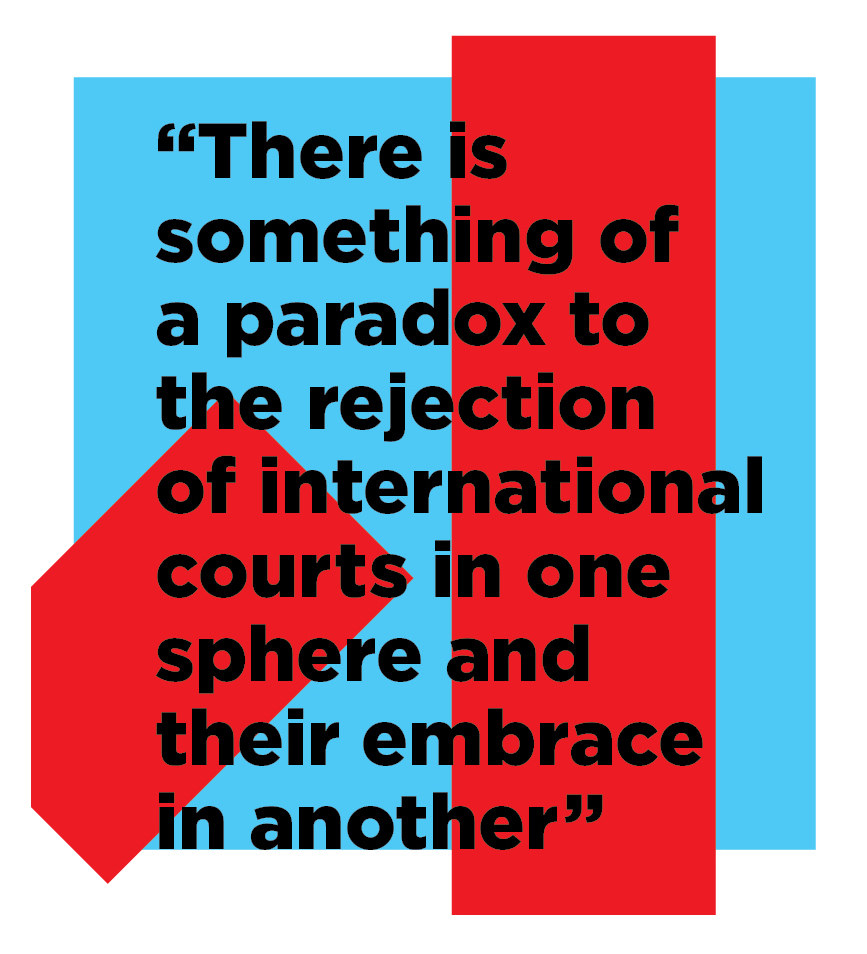
"We have had more than 700 investment treaty claims to date that we know of – because some claims can be pursued without the public being made aware of them – on the basis of previous agreements," Poulsen told MPs.
"Of the decided cases, we have had about a 50/50 split. About 50% have either been won by investors or settled, typically on unknown terms, and the other half have either been discontinued or won by the government.
"You raise an interesting question: Which sorts of measures are being targeted in investment treaty arbitration? As a starting point, I think it is important to highlight that a very, very wide range of regulatory measures have been targeted ranging from environmental regulation, public health regulation, taxation, court decisions and so forth."
Poulsen told BuzzFeed News there was a case for the UK to try to restrict access to ISDS in any deals it signed, for example by restricting access to the system for states only, rather than corporations.
"A core question is whether private firms or other non-state actors should be allowed to use the agreements to file international claims against governments," he said.
"The negotiations of TTIP and CETA indicate that it can be a political gamble to insist on such provisions in agreements between parties, where there is trust in legal systems on both sides of the negotiation table. In both cases, the controversy threatened the political support for some of the most ambitious trade agreements ever negotiated."

Ironically, opposition to international trade deals and the threat they could potentially pose to the NHS was one of the biggest drivers of pro-Brexit social sharing, analysis by BuzzFeed News found.
The single most shared story about Brexit during the referendum campaign was a piece in the Daily Express headlined "Major leak from Brussels reveals NHS will be ‘KILLED OFF’ if Britain remains in the EU" – referring to the (disputed) risk TTIP could pose to the NHS, and suggesting that leaving the EU would dispel such a threat.
However, one expert has warned the UK could face a more imminent threat from corporations through ISDS – companies challenging the government over the very decision to leave the EU.

In a recent panel talk, Professor Roger Alford of the University of Notre Dame noted that a UK company had successfully challenged the government of Argentina through ISDS to reverse a regulatory decision, and said it was possible overseas companies could do the same to the UK over the impacts to their business of Brexit.
"What is good for the goose is good for the gander," he said. "Does a change in the regulatory framework by withdrawing from the EU and EU free trade agreement network constitute a change so severe and radical that an arbitral tribunal would find a violation of fair and equitable treatment?"
Alford raised the example of a car manufacturer investing in the UK with the expectation of being able to sell cars tariff-free to EU countries only to be faced with a (hypothetical) 10% tariff post-Brexit, or a bank making an investment decision in London only to find themselves unable to transact for EU nations.
"These claims seem at least plausible," he said.
"With the UK not yet triggering Article 50, these issues are only now beginning to be explored. But I know from personal conversations with investment arbitration practitioners, the possibility is real and the risk to the UK is genuine."
